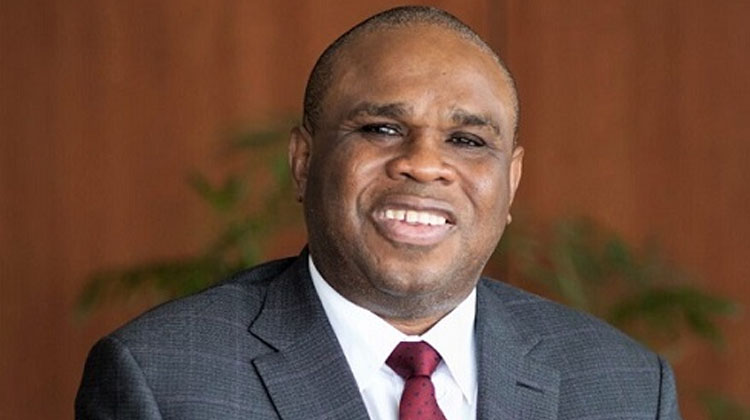Afreximbank’s Oramah reveals African Stock Exchange initiative to channel homegrown capital
… Says five Stock Exchanges selected as pilot project
Washington D.C || A local currency-driven African stock exchange is being planned to unlock domestic capital across the continent, according to Benedict Oramah, outgoing president of the African Export-Import Bank (Afreximbank).
He revealed this while speaking at the unveiling of United Bank for Africa’s (UBA) White Paper titled “Banking on Africa’s Future: Unlocking Capital and Partnerships for Sustainable Growth”, in Washington D.C., a document described as a blueprint for driving Africa’s transformation from within.
Oramah, who commended UBA for investing in research and thought leadership, said Africa’s real challenge is not the lack of capital but the inability to effectively channel it.
“When other commercial banks start investing in this kind of research and thinking, we will have begun to address some of the deeper problems we face,” he said. “The bulk of intellectual capital on the continent sits within our banks. They have been focused mainly on money, money, money today, not realising that deep thinking will ultimately bring them much more money tomorrow.”
He emphasised that the problem of Africa’s development is fundamentally a problem of capital, not necessarily its absence. “There is an abundance of capital, but it is fragmented. Some believe capital is scarce, but having capital that cannot be accessed or used effectively is as good as not having it. What is crucial is being able to channel capital in forms that can actually be used,” Oramah explained.
He said Afreximbank had taken deliberate steps to address this challenge, prioritizing scale over early efficiency in order to mobilize capital from within the continent. “The first priority for the bank was not necessarily efficiency, but size. We wanted to grow the bank rapidly so that it could take on large projects. Efficiency could come later,” he stated, adding that this was made possible by private investors who shared Afreximbank’s vision of building a robust pool of capital mobilized in African currencies.
Citing China’s example, Oramah said Africa must learn from economies that financed their growth primarily in their own currencies. “China developed because it was able to use its own currency to finance its development. Africa, by contrast, with 42 currencies and a fragmented payment system, has no real chance unless something is done to remove this fragmentation. That is one of the reasons we developed the Pan-African Payment and Settlement System (PAPSS),” he said.
He explained that PAPSS is designed to integrate all 42 national payment systems across Africa, allowing payments for trade and investment within the continent to be made in local currencies. “We cannot claim to want goods and services to move freely across African borders while our capital is stopped at those same borders,” Oramah noted.
Highlighting the next stage of this initiative, Oramah disclosed that Afreximbank is working with the African Stock Exchange Association on a project known as the “linkage project,” which will connect African stock exchanges through the PAPSS platform. “We have selected five stock exchanges to pilot it. Using the system, someone in Nigeria can buy shares on the stock exchange in Egypt using the naira, while an Egyptian can buy shares in Nairobi using the Egyptian pound,” he said.
According to him, this innovation will tackle one of Africa’s biggest hurdles to mobilizing domestic capital liquidity. “It gives our stock exchanges the liquidity that will attract investors to participate actively, whether by having their companies issue shares or by buying and selling on the exchanges,” he said. Beyond that, he added, the system would make it possible to list bonds in African currencies, encouraging cross-border investments within the continent’s financial markets.
Oramah noted that over time, this could lead to a convergence of monetary policies across African countries, fostering deeper economic integration. “Because we are already seeing results in the physical economy, this system can become an engine for mobilizing the capital we need to build our infrastructure,” he said, citing a recent transaction in which Afreximbank issued a letter of credit for an Egyptian contractor executing a project in Ghana, denominated in Egyptian pounds.
Read also: UBA launches white paper to unlock $4trn idle capital in Africa
He added that such arrangements could reduce Africa’s dependence on foreign currency borrowing and, by extension, its sovereign debt burden. “The biggest source of sovereign debt on the continent is that we finance our infrastructure in foreign currencies. But if an Egyptian contractor is building a project in Ghana and is paid in Ghanaian cedi while the Egyptian side receives Egyptian pounds, that borrowing in foreign currency would not need to happen. Over time, this will reduce Africa’s sovereign debt burden,” he explained.
Oramah stressed the need for Africa to develop its own financial architecture tailored to its needs, rather than relying on global systems that do not serve its interests. “There is no point in continuing to depend on the global financial architecture because it was not designed for us. What will truly work for us is African financial architecture, and I hope this conference and this research initiative will form the foundation for that new thinking,” he said.

